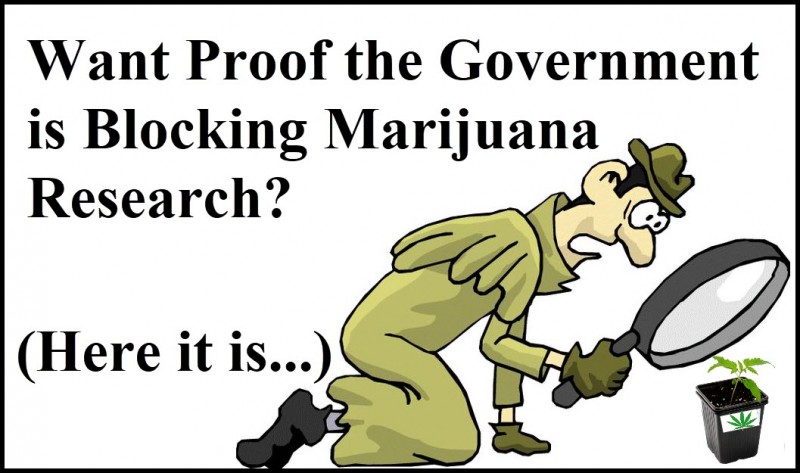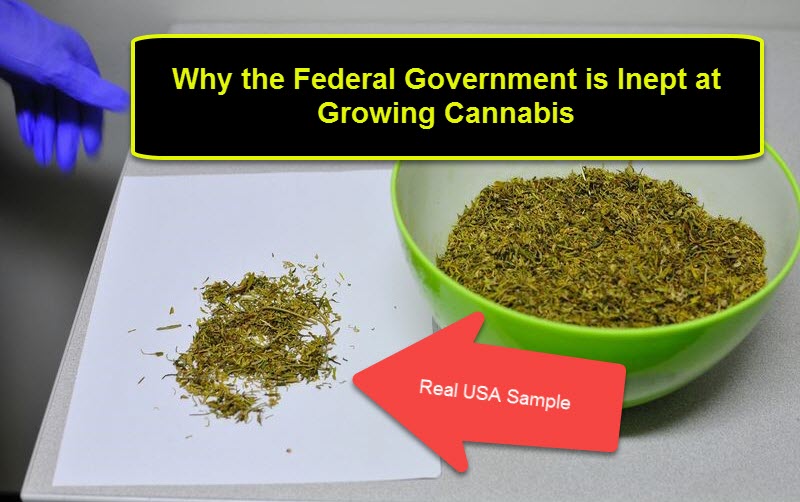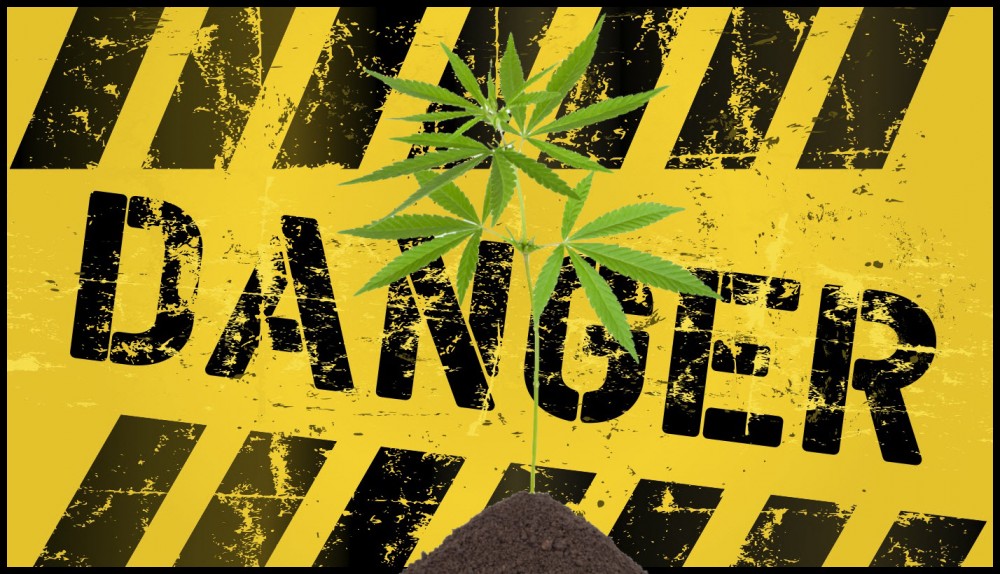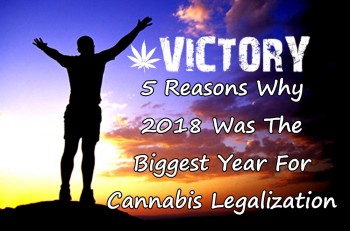Here’s Proof Your Government Is Blocking Marijuana Research
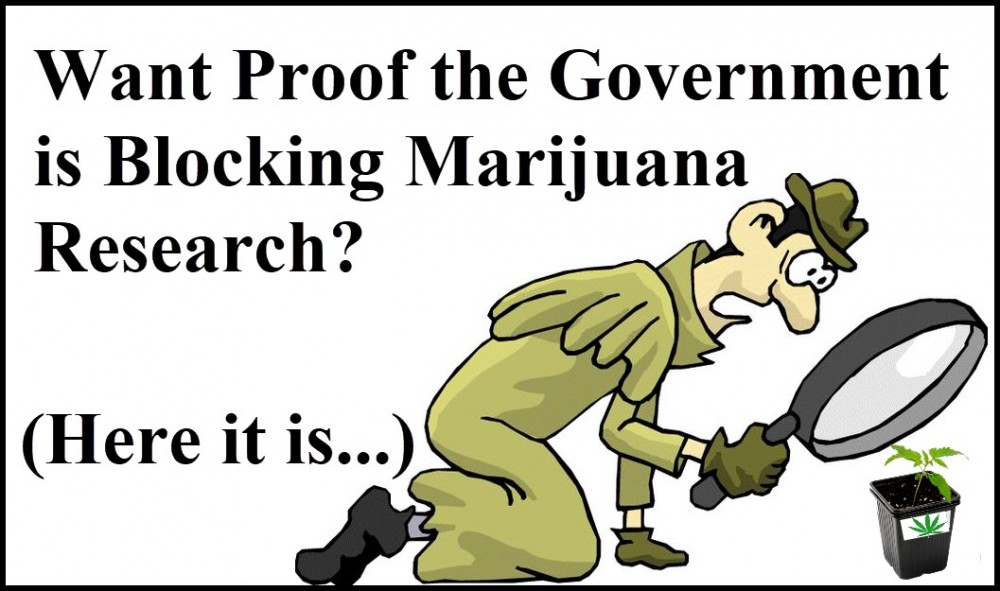
We’ve tackled the problems of cannabis research in the United States before, but now there’s new evidence that there are serious issues impeding the progress of research.
Hint: POTUS.
The government has only allowed one grower of cannabis to produce the pot we need for research, and that stuffy is grown at the University of Mississippi. “Based on discussions with the National Institute on Drug Abuse and the Food and Drug Administration, the DEA has concluded that the best way to satisfy the current researcher demand for a variety of strains of marijuana and cannabinoid extracts is to increase the number of federally authorized marijuana growers,” said the DEA in 2016, under the Obama administration.
In effect, they allowed more people to apply to grow cannabis.
That would have been the ideal scenario, but it was actually more ambitious than anything, really.
Based on this policy, there would be more cannabis research and if these yielded positive findings resulting in Big Pharma developing more cannabis products, they would be able to easily obtain a federally legal supply of cannabis which wasn’t possible before.
The real problems started when US President Trump put Jeff Sessions in charge of law enforcement. Sessions, who was outspoken about his abhorrence of the plant, successfully stopped the new DEA policy from progressing further. And the matter would stay that way until he was in power.
But Sessions has already been sacked, yet the United States Justice Department hasn’t moved forward with processing more cultivation licenses. According to DEA rep Rusty Payne, they are “still working through the application process with the Department,” he tells Vox when asked about updates.
A report by Marijuana Moment discusses what researchers from the University of Colorado discovered when analyzing the genetics of cannabis provided by the National Institute on Drug Abuse (NIDA). They write: “The study… looked at 49 different cannabis samples, including hemp and NIDA-supplied marijuana, as well as various indica, sativa, and hybrid strains sold in the commercial market. When the samples were genetically analyzed, the researchers were surprised to find just how different NIDA’s marijuana is from the cannabis most people are consuming… The research-grade cannabis from NIDA shared a closer ‘genetic affinity with hemp samples in most analysis’ than with commercially available marijuana.”
In other words, the cannabis that has been allowed by the government for research, isn’t anything AT ALL like the cannabis they SHOULD be studying.
For years, researchers have been complaining that the quality of weed they’re getting from the University of Mississippi is the main reason why we still have so many questions about how cannabis works. They’ve even called it “green dust” and some say that it resembles oregano more closely than cannabis.
NIDA Admits That Cannabis’ Schedule I Status Impedes Research
President Trump and the government have all the power to reclassify marijuana and open up research. But they aren’t.
In a House Appropriations subcommittee discussion, NIDA director Nora Volkow was asked about how cannabis research would be affected if the Justice Department classifies a plant called kratom in the Controlled Substances Act under Schedule 1.
“Indeed, the moment htat a drug gets a Schedule 1, which is done in order to protect the public so that they don’t get exposed to it, it makes research much harder,” she explained. “This is because researchers actually have to go through a registration process that is actually lengthy and cumbersome.”
Additionally, Volkow explained that obtaining Schedule 1 drugs for the purpose of research is also difficult. Since there’s only one licensed, legal cultivator of cannabis for research in the United States, this has caused nothing positive and only given both the scientific and legal community alike frustrations. “This is something that we’ve worked with with cannabis. It’s a perfect example, marijuana,” Volkow says. She explains that researchers would be faced with similar obstacles should kratom classified as Schedule 1 becaause it would “make it very difficult for our researchers to get ahold of the pharmacological compound itself.”
Things aren’t any better for CBD. When Volkow was asked to share her thoughts about CBD, she said that it was concerning CBD was so widely available, and that it’s dangerous that CBD manufacturers are making unfounded claims. This could cause patients to “forgo medications that can be lifesaving,” she said.
So until the federal government finally removes the unnecessary red tape on cannabis research, consumers and companies will be left to take matters into their own hands. They’ve actively chosen to leave us in the dark when it comes to cannabis research.
READ THESE NIDA ARTICLES IF YOU DARE...
HOW THE NIDA BLOCKS CANNABIS RESEARCH EACH YEAR, CLICK HERE.
OR..
WHY THE GOVERNMENT GROWN CANNABIS IS REALLY HEMP, CLICK HERE.

